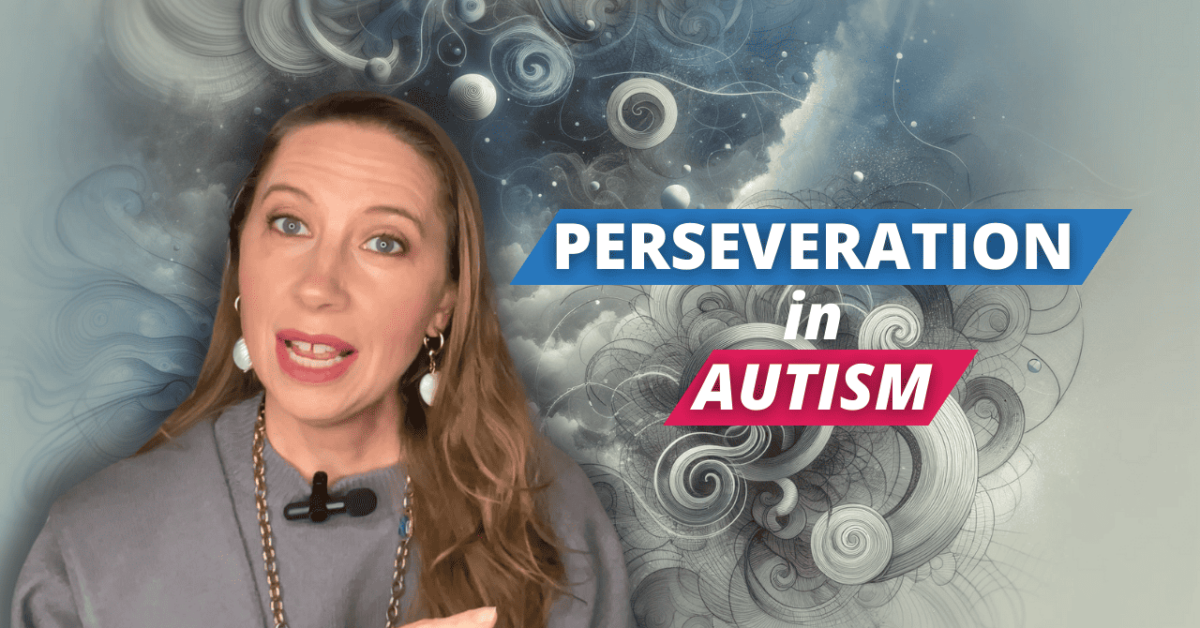Does your child ever get caught in a loop? Do they continue something past the point where it seems acceptable? Then it might be that your child with autism is perseverating.
What is perseveration in autism?
Perseveration is the uncontrolled repetition or continuation of something in the absence of any reason for those thoughts or behaviors.
What are some examples of perseveration?
- Continuing to ask the same question even after it being answered. “Where were you born? What year were you born?” Things like that.
- Answering all questions with the same word is another example. Although, apraxia might be involved, so keep that in mind.
- Thinking about a situation or conversation from the past.
- Repeating an action over and over. Think fidgeting.
Does perseveration only happen in autism?
No. Perseveration is very common in those with traumatic brain injuries. It’s also common in other therapeutic areas.
What is rumination in autism?
Rumination in autism differs from perseverating in autism because with rumination, it is the repetitive thought about a particular thing. Rumination is a subset of perseveration.
There’s also a biological rumination that can happen, and that’s when someone pulls up their food from their stomach. That’s a medical aspect that can happen with autism.
Perseveration and emotional dysregulation
I like to relate perseveration to emotional dysregulation since that is what many parents experience. Emotional dysregulation is defined as the inability to use ways to modulate emotions, which impacts functioning.
There’s one research study that proposed perseveration can lead to the development and maintenance of emotional control issues.
What research has been done to look at effective therapies and interventions?
Firstly, it would be important to make sure your child is healthy. You would want to understand functional medicine and find out if there were any health reasons as to why your child is having emotional dysregulation issues.
Secondly, there was a research study done with 56 young adults with autism, and the research showed that those who used suppression as their coping strategy versus reappraisal, which is a strategy based on reinterpreting a situation in order to change how one feels about it. In this study, it was found that those who had high suppression and high reappraisal reported high positive well-being and low depression symptoms.
Perseverating doesn’t have to be something that holds your child back from experiencing a full life.




